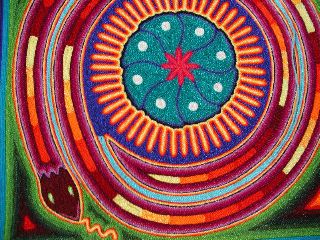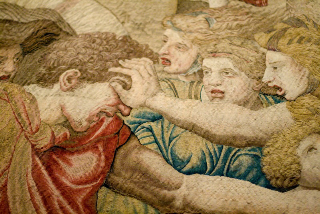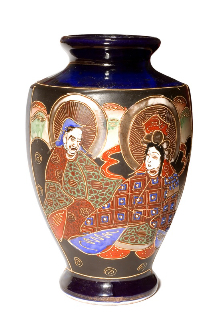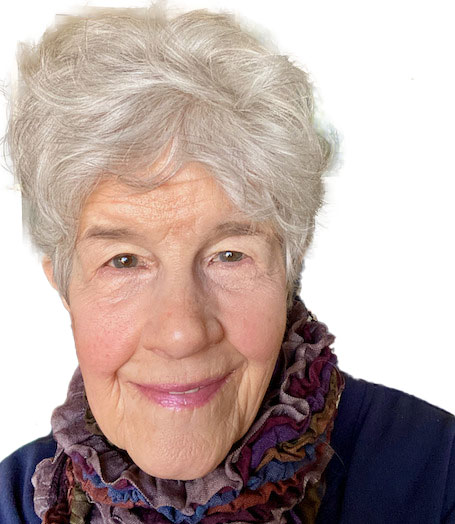
I recently returned from an EFT conference in England, where I taught a class on the highly sensitive temperament.
First I talked about the trait of sensitivity. It is INFP in the Meyers-Briggs temperament types, and the Idealist-Healer in the Keirsey Temperament Sorter. Here is one list of aspects of this trait (sound like anyone you know?):
Abstract in thought and speech
Cooperative
Introverted
Appear reserved and shy
Diplomatic
Empathic
Hunger for deep and meaningful relationships
Value personal growth, authenticity and integrity
Internally deeply caring
Deeply committed to the positive and the good
A mission to bring peace to the world
Strong personal morality
Often make extraordinary sacrifices for someone / something they believe in
Imagination and evolution are the goal.
Seek unity, feel divided inside
Often had an unhappy childhood
May have been raised in a practical, industrious, social family
Didn’t conform to parental expectations
Often feel isolated, “like an alien”
See themselves as ugly ducklings
Rich fantasy world as a child, may have been discouraged or punished for this by parents
Wish to please, try to hide their differences
Believe and are told that their sensitivity is bad
Drawn toward purity but continuously on the lookout for the wickedness they think lurks in them
Self-sacrificing to an extreme, in atonement for their failings
Keep this inner struggle hidden from others
(Resources: David Kiersey, Please Understand Me II; Myers-Briggs Personality Type Indicator; The Highly Sensitive Person, Elaine Aron)
I asked people to share what they most liked and most disliked about being so sensitive. The answers ranged widely and thoughtfully. On the "like" side, they shared about being grateful for their deep sense of empathy and compassion, their appreciation of beauty, a strong sense of justice, their ability to sense what is going on in another person.
On the "dislike" side, people talked about things like feeling too open to other peoples’ feelings, not having good boundaries, getting their feelings hurt so easily, and being criticized all their lives for being too emotional.
People who are sensitive often seem to be born into highly critical, maybe emotionally abusive families. Appearances seem to count more than the truth of feelings. Nothing is ever good enough. It is likely that their parents were the same way, and the parents of those people, and the families before them, and on back through the generations of ancestors.
Many years ago I found a fascinating, lyrical description of how this emotional inheritance might happen, written by a doctor of Chinese Medicine named William Lieske. He used to have a very informative website on acupuncture (which now appears to have disappeared from cyberspace!). Speaking about the growth of a baby in the mother’s womb, he said that the first beat of the brand-new heart is a magical moment that establishes life. And then:
“…The second beat, and the first in what will determine our identity, is the amygdala. The amygdala starts forming immediately after the heart’s first beat. It stores all the memories of our life in the womb, with the placenta, the water, the fluids of life and the terror of losing them, and also the joy of being fed, of bouncing, of moving. But the amygdala stores also the life of the mother, her depressions, her fears, her memories. And this accumulation of memories goes on in us till the age of three. Which means that all this time we have lived, our life has been recorded for us in the amydgala.
“After the age of three the hippocampus matures in us. In it conscious memories are stored and we have access to them. However, in the hippocampus, we have no access to the memories and the life we lived in the amygdala of the previous three years, even if from this point on amygdala and hippocampus converse with each other (Carter, Rita, 1998).
“What happens to the memories of the amygdala? They become our
individual nightmare, the invisible conditioning of all our actions, the blind spot of our lives, the origin of all our terrors, the unknown reason why we do what we do even when we do not know why we do it….“The conditioning of the amygdala can only be removed by the intelligence system previous to it, and this is the heart, with its electromagnetic force and its power of transformation. Otherwise, the amygdala can act on its own, bypassing the intelligence centers of the neocortex. [Our limiting beliefs] keep acting, in spite of our good intentions.”

I asked the group to think about their own families’ beliefs and behaviors and habits. What were some of the good things? Some different examples: "We are survivors. We get things done. We are always helpful to others. We don’t complain. We are achievement oriented – very successful people."
Then we look at the negative, limiting, rigid expectations and beliefs, the blocked skills, the pain: "I never felt seen or heard for who I am. Their needs were always more important than mine. My talents and gifts were not appreciated. I wasn’t allowed to want anything. I felt dismissed, or actively squashed. I felt so different from everyone else."
I ask them to think about their own life challenges and their experience of growing up in their families in light these beliefs and behaviors. The environment we grow up in seems to be the truth, as we know it. We think this is our identity.
We consider how these patterns and expectations are replicated in our schools, our religions, our social culture, our national identity (perhaps even, I suggest, the history of the human race itself).
I draw a shape of a vase on the flip chart. I say that it represents the saga of their ancestral family spirit replicating itself through the generations. As a spirit, an information space, a being in itself, the ancestral family spirit is always seeking to grow and expand, across space and time. Just as we do individually, the spirit may feel limited by the rigidly held habitual thinking patterns that have led to pain and dysfunction across space and time, as generation after generation incarnated, and struggled to improve their lot.
I think of each of our family spirits as forming threads in the grand tapestry of history, weaving the future of humanity and the world.
I ask the class participants to imagine that the spirit of their family is rooted in the earth. The earth is a place of instinctual, cyclical, habitual patterns. Everything on earth operates by cycle, habit, unconscious patterning, instinct. There is a vast multiplicity of forms on the earth, always metamorphosing into something new, and still they all follow the patterns set by their inner instinctual blueprint.
And I remind them to be aware of how, even in its most distorted form, their family is also an expression of the best of the human spirit, its sense of freedom and imagination, its creativity.
Now I say I am going to tell them a story. I invite them to imagine that their ancestral family spirit, the group being that represents the thread of their whole family across the generations, wants to evolve towards a release of limitations. It puts out a call to beings that can "stand at the edge of instinct" and be a catalyst for its inner growth of creativity and possibility.
"…Imagine," I say, "that you are responding to this call. You, with the trait of sensitivity, represent a natural intention toward expansion and opening, freedom, movement, flow—the best of the spirit of Humanity—exactly what is needed to break open old structured habitual patterns of thought and behavior…You willingly, maybe even knowingly, come forward into this family."
(I draw a cloud shape at the top of the vase, with ‘YOU: Freedom, Creativity and Imagination’ written in it)
"However!" I continue, "Just as in our relationships with others in our lives – in a marriage, for example – we are often unconsciously invoking way more than we bargained for. As our naturally expansive generative energy contacts the constricted, contracted space of our old family patterns, there is generated apparent discord, disharmony, pain, trauma. This can be represented as a crack in the vase. You are too much for them!"
(I draw a crack down the front of the vase.)

"As the sensitive person caught in the midst of this maelstrom, we fall victim to the experience of the crack: the habitual patterns of belief and behavioral tendencies in the family/cultural identity. Maybe it is over-perfectionism, self-criticism. It might be toughing it out and soldiering on, ignoring our own pain and our own needs. Maybe the crack in our family is about beliefs about our self worth (‘There must be something wrong with me! Let me out of here!’). Very likely there are feelings of anger and sadness or fear and shame. "
"What other limitations could the crack in your family spirit represent?"
"Because we are so close to the crack it feels like our personal identity. We can’t see that our intention to heal our own pain is actually generating a healing in this crack as well. And where our ancestors are now," I continue, gesturing out toward space, or maybe in toward inner space (who knows where they are!), "at least some, maybe many of them, now understand this process that we are immersed in, and they stand in support of it, in support of our healing efforts. They want us to succeed!"
"So, instead of feeling broken and somehow wrong, we could think of ourselves instead as intentionally participating in an expansive evolutionary process, our personal gift to the evolution of consciousness, or the consciousness of evolution."
"We can think of ourselves as having responded to this call with a personal mission to do what we can to transform the thread of our own family in the tapestry of humanity across space and time… In that sense, nothing we have done has been wasted. It is all woven in, changing the picture of everything as we ourselves change."
And then I bring in the EFT work that we are here to explore more deeply. The essence of it is the phrase "I deeply and completely love and accept myself."
I write that phrase underneath the vase, a foundation that this emerging transformation can rest upon and be held by. I add that we can even expand this thought: "I deeply and completely accept the deeper intention of my family spirit…. I deeply and completely accept the world as it is, and as it can become…."
Herein lies the healing of the heart of the world.
I ask for an individual volunteer. Someone bravely comes forward, and we do the EFT work together on behalf of all of us, to transform the effects of a belief that was held in her family. Everyone else in the group participates too, from within their awareness of their own family patterns. In EFT this is called "Borrowing Benefits," based on the thought that the group work generates an energy field that can be healing for everyone.
The volunteer’s belief starts out being about "You have to work hard to be successful." This belief quickly morphs into being about her experience of her mother never letting her express any emotion. This young woman grew up thinking that her feelings must be bad—so she didn’t feel them, she could only talk about them. I am noticing this. As she talks about herself, she doesn’t seem to feel what she is feeling, although I can see and sense that the deep feelings are in there.
It turns out that her grandmother, her mother’s mother, had also been a very repressive and judgmental person. That means to me that the great-grandmother must have had the same critical nature, and on and on…all these generations doing their best to survive their lives thinking the tools they were given were the only tools, thinking this was the truth. "Life is hard. Don’t make a fool of yourself," the volunteer’s mother had told her.
By the time our tapping work is complete, the room feels full of ancestors and light and angels. And suddenly the volunteer client has a vision of her other, dearly beloved grandmother giving her a big smile of approval!
I finish the session with some group EFT, using these thoughts:
Especially because I LOVE THAT I AM SO SENSITIVE ….
… I choose to deepen and expand my sensitivity in even more powerful wonderful ways.
Especially because I LOVE THAT I AM SO SENSITIVE ….
… I hunger for deep and meaningful relationships so I make creating and maintaining a good and satisfying relationship with myself my first priority.
Especially because I LOVE THAT I AM SO SENSITIVE ….
…and I have a mission of bringing peace into the world, I choose a mission of bringing peace into my own life. I deserve this!
I CHOOSE TO STAND UP FOR MYSELF, and express who I am with love and a light heart.
I love and appreciate and honor this world-changing soul quality that I have been so blessed with.
The world needs what I have to offer. I am ready to be more!
With my love and blessings –
Rue

